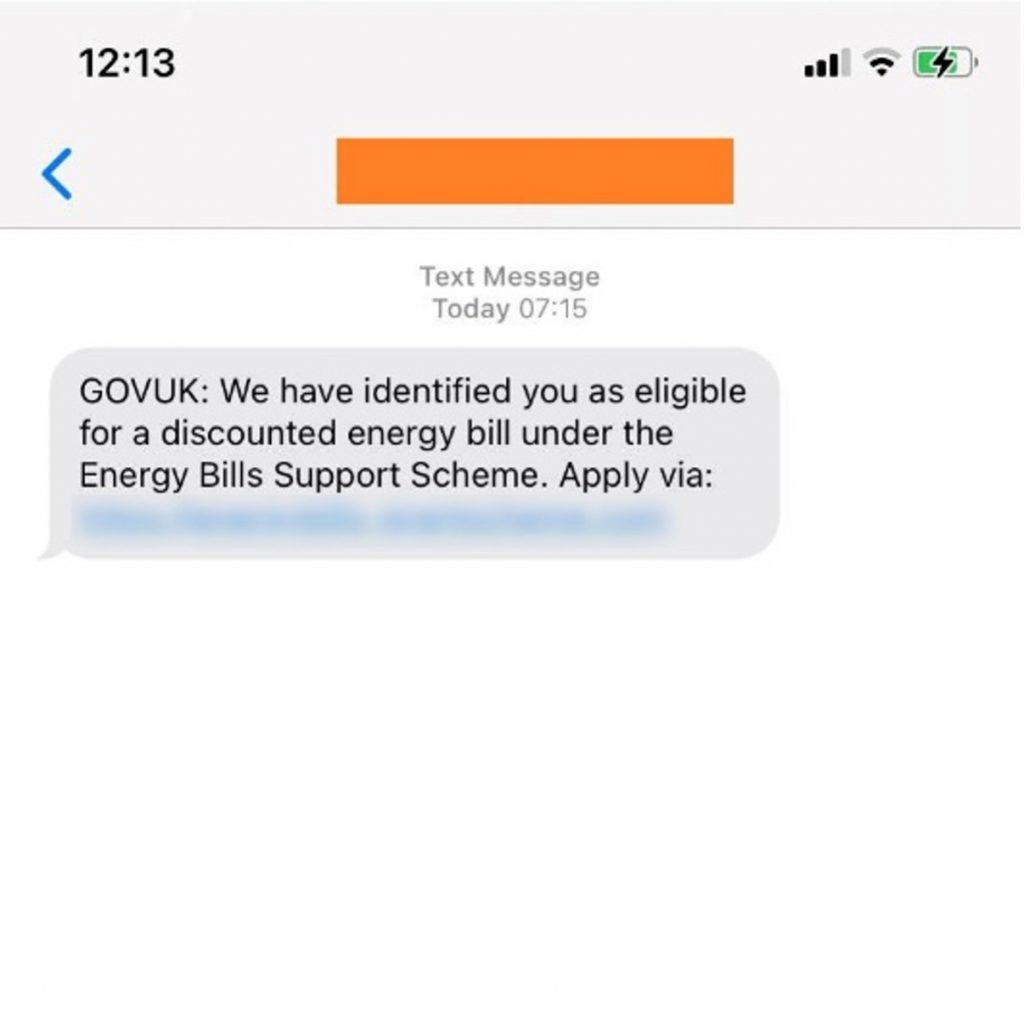Over the last few days, scammers have been exploiting the British government’s recently announced Energy Bills Support Scheme by sending out highly convincing phishing text messages to try to trick people into parting with their personal and financial information. Whether you’ve received such a message or you’re just looking to learn how to protect yourself, keep on reading for all the information.
What is the Energy Bills Support Scheme?
The British government recently announced the Energy Bills Support Scheme as a way to help households across Great Britain cope with the continued rise in energy costs, which have increased significantly globally since the summer of 2021.
Under the scheme, all households across England, Scotland, and Wales with a domestic electricity connection (around 99% of all households) will receive an automatic £400, non-repayable discount on their energy bills over the winter. The discount will be paid in six monthly installments between October 2022 and March 2023.
It’s important to note that the discount is applied automatically. There is no need to contact the government, your energy supplier, or anyone else.
Energy Bills Support Scheme scam
If you’re a regular reader of this blog, you’ll know that we often post about phishing scams. However, this one is particularly convincing.

As you can see in the image above — which is a real phishing text message — the language used is very authentic sounding. There are also no typos or strange wordings — which are both ordinarily common giveaways of phishing scams. The link included in the message (blurred in the image above), isn’t overly suspicious, either. It even uses “https” rather than “http”. Ironically, the “s” stands for secure!
Energy Bills Support Scheme phishing link:
- energybills-grantscheme[.]com
If you weren’t familiar with how the scheme works, falling for this scam would be fairly easy. If you were to be deceived and click the malicious link included in the message, you would be taken to a phishing site designed to steal your personal and financial data.
Fortunately, the phishing website the site links to is currently offline. However, it is highly likely that the scammers will bring it online again or redirect the link to a different phishing site.
How to Protect Yourself from Phishing Scams
If this scam is anything to go by, it shows that phishing scams are getting progressively more convincing — which is very worrying. While it’s great practice to not click on links in unsolicited messages and to look out for typos and strange wordings, if you want protection from all phishing scams, the best solution available is Trend Micro ScamCheck.
Trend Micro ScamCheck — our 100% FREE browser extension and mobile app — can protect you against phishing scams, malicious websites, risky emails, and lots more! If you come across something dangerous, you’ll be alerted in real time so you’ll know to stay well clear.
As ever, if you’ve found this article an interesting and/or helpful read, please do SHARE it with friends and family to help keep the online community secure and protected. Also, please consider clicking the LIKE button below.
